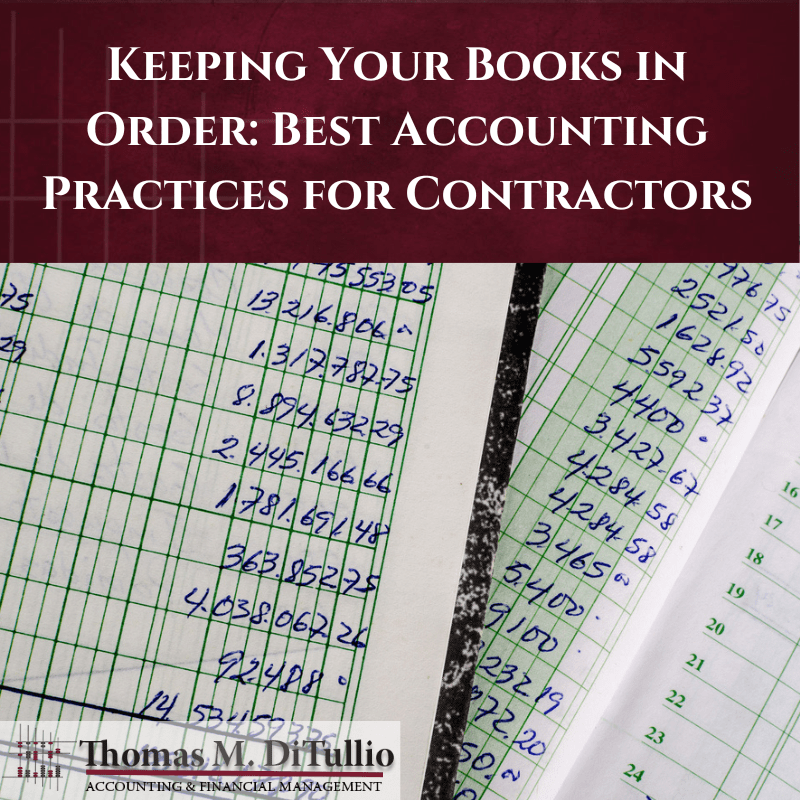Keeping Your Books in Order: Best Accounting Practices for Construction Contractors
With the fast-paced nature of the construction industry, accounting for these businesses can be challenging. The accounting methods in this field differ from those in other sectors. Contractors have to handle numerous projects simultaneously, each distributed across multiple locations. Along with that, they must manage each one’s costs, revenue, and profitability. Find out the best accounting for construction business practices to maximize your profitability and cash flow.
Key Construction Accounting Best Practices
With the complex nature of the industry, you need to consider allocating direct and indirect project costs, selecting between cash-basis or accrual-basis accounting, and choosing the right revenue recognition method for long-term projects. Properly managing change orders can also have a significant impact on the success of a project. Here are the best practices for construction accounting that you will want to implement for your business.
Job Costing
Accurately tracking expenses for each project is crucial for your construction company to control costs and measure profitability. With that, you can ensure that all direct and indirect expenses are promptly allocated to the proper job. During any project, you will want to record expenses and submit them daily. Time-tracking software can help monitor labor costs, while expenses should be categorized in the same way as in the estimate to analyze whether the job is proceeding as planned. Your company should also have a standard formula for allocating indirect expenses, such as administrative overhead, to each project. When you use modern, cloud-based project management software from the job site, your workers improve on-time completion records, keep customers informed, and minimize non-billable work.
Choose the Right Accounting Method
Construction companies have two primary options when it comes to accounting methods: cash basis and accrual basis. Smaller firms often prefer simpler cash-basis accounting, which records revenue when received and expenses when paid. However, companies with revenues exceeding $25 million cannot use cash accounting for tax purposes. The accrual-basis method is more complex and required for larger businesses, including public companies. This method generally provides a more accurate picture of a company’s finances but may obscure short-term cash flow issues.
Manage Change Orders
Change order management in construction projects is crucial to ensure that changes don’t cut into your project profits or result in customer disputes. The original contract should outline how to handle change orders in your project. You should also establish a standard change order process that includes the complete documentation of the work and costs required for each change requested. Ideally, you should hold off on starting work until a signed agreement from the customer is received. Some companies need a formal approval process to accept change orders. No matter what, you will want to record change orders accurately in the accounting system so that project cost and profitability can be tracked.
There are several accounting approaches to managing change orders. For unapproved change orders, you can add the costs associated with the change order to the project’s direct costs. If you are implementing a change order that’s unapproved but likely to be approved, you can add the costs to an asset account until approval for the change order is obtained. Alternatively, you can add the expense to the project’s costs and increase the anticipated project revenue by the same amount. For approved change orders, all costs associated with the change order should be added to the project costs, and the total contract value should be increased by the amount charged for the change order.
Select the Right Tax Strategies
Construction firms need to plan their tax strategies year-round to get the most benefit and ensure they comply with IRS requirements. Often, contractors that are owners or investors in the company are considered pass-through entities, including sole proprietorships, partnerships, and most LLCs and S corporations, can deduct their allocated share of losses. Contractors can also minimize tax liability by maximizing retirement plan contributions and reducing pretax income. By implementing these tax reporting strategies, contractors can better manage their tax liability and maximize their tax benefits.
Use a Firm That Handles Construction Accounting in NJ
A South Jersey accountant can help you keep your financial records organized and accurate, ensuring compliance with tax regulations and avoiding penalties. They can help you choose the right accounting method, such as accrual-basis accounting, that accurately reflects your company’s finances and enables you to manage your tax liability.
Additionally, an accounting firm can provide valuable financial analysis and reporting, helping you make informed business decisions. They can help you identify profitable areas of your business, enabling you to make adjustments and optimize your operations. These professionals can also help you track project costs and profitability, giving insight into which projects are the most profitable and ones that may need adjustments.
Finally, outsourcing your accounting needs to a professional service can save you time and resources, enabling you to focus on your core business operations. It can also provide you with peace of mind, knowing that your finances are handled by experts who are well-versed in the complexities of construction accounting.
Need Help With Your Construction Accounting?
If you’re a small construction business owner looking for reliable and personalized accounting services, TMD Accounting is the right choice. As a family-owned and -operated firm, we understand small businesses’ unique needs and challenges. Our experienced team of professionals has helped numerous clients over the years. We’re dedicated to building long-lasting relationships based on trust, integrity, and exceptional service. Our firm offers various accounting services, including payroll processing, tax planning and filing, and financial statement preparation. Schedule a consultation by calling 856-228-2205.

